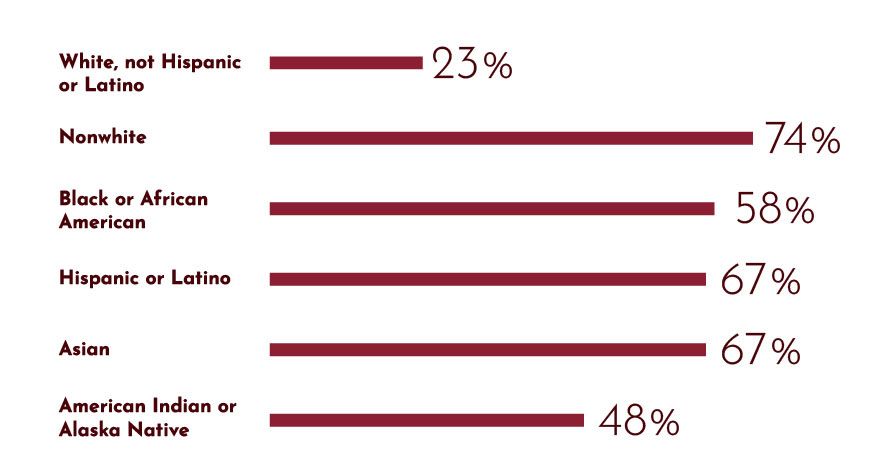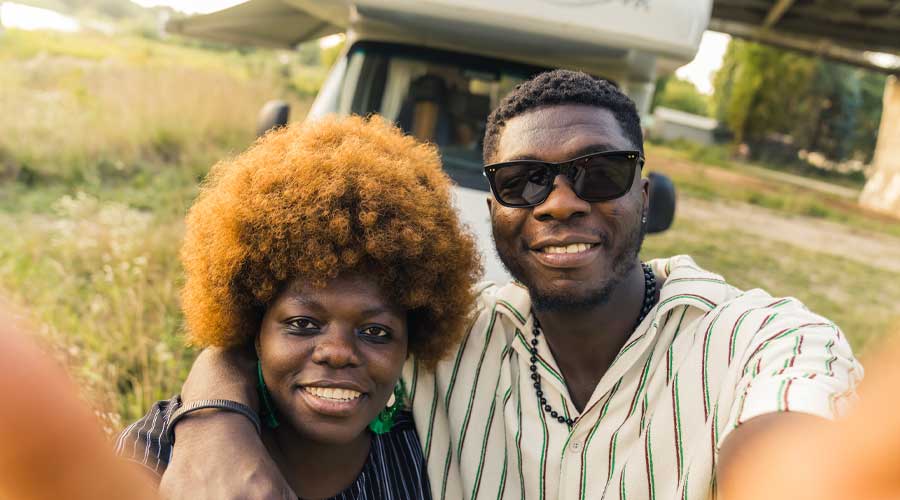When some people think of nature, they picture aspects of it that are readily accessible by just walking outside, like a park or outdoor trail. While this might be the case for many white communities across the country, communities of color would cite vastly different experiences. Economic and racial disparities remain all too present in our country’s modern green spaces and who has access to them. The experience of nature should be something that all U.S. citizens can benefit from, regardless of ethnicity. These environmental injustices have affected many underserved communities, such as those residing in “Cancer Alley” in southern Louisiana who continue in their fight for justice to this day. These real disparities regarding access to nature are referred to as “The Nature Gap” and it’s up to us to understand this problem better, in order to find solutions.
Understanding the Nature Gap
Research cited in the book “Healing Gardens” found that when people feel stressed, over 60% choose to be outside and surround themselves with nature to ease their stress. Nature offers therapeutic benefits to any person overloaded with emotions and who feels a need to escape. However, many underserved communities in the U.S. are not able to simply step outside to enjoy the wonders of nature when they feel overwhelmed. This is what we call “The Nature Gap” – a combination of racial and economic disparities that directly affect the well-being of communities of color, especially Black, Asian, Hispanic and Latino communities.
People of Color Are More Likely Than White People to Live in an Area That is Nature Deprived

According to the U.S. Census Bureau, 58% of Black communities reside in nature-deprived areas of the U.S. By contrast, only 23% of white communities lie in a nature-deprived area. This statistic is alarming and shows the racial and economic disparities between these communities in the U.S.
Lincoln Hills Cares Commitment to Underserved Youth
There are organizations out there that understand the complexities of The Nature Gap and its effects on underserved communities, especially on youth. Lincoln Hills Cares has a mission to “develop the next generation of young leaders through outdoor education and recreation, cultural history exploration and workforce advancement.” Their outdoor programs specifically help youth who suffer from economic and racial disparities within their communities. Lincoln Hills Cares is located in the Denver metro and Front Range mountain areas where nature is available in many forms, both in urban areas and directly in the wilderness of the Rocky Mountains. They have purposefully created nature-focused programs that empower youth and provide them with the opportunity to explore including:
- Youth and Family Outdoor Education: This program partners with youth-serving organizations to provide experiences and opportunities for young people and their families to learn more about the outdoors. Activities include going on hikes and tracking wildlife.
- Nizhoni Equestrian Experience: This program uses equestrian experiences to help promote emotional and social development for young girls. These girls receive instructional sessions on horseback riding and how to properly care for horses.
- LHC Pathways: This program provides resources, such as shared work experiences, to help youth who want a future career in public and environmental health. These experiences include setting up food drives for the community and cleaning up the environment around them.
- TeamWorks Service Learning Program: This program partners with Teens Inc. to educational opportunities within natural sciences to provide a summer paid work experience to youth ages 16-20 in Denver. This allows students to receive working wages while expanding their knowledge about environmental conservation, land management, local history and more.
- Environmental STEM Pathway (E-STEM): This program provides an educational program to youth called “Trout in the Classroom Curriculum,” allowing them to raise trout from eggs to the point of eating the fish. Students are able to retrieve the eggs from a local river and then watch them grow in a classroom environment afterward.
Robert F. Smith’s Impact on Youth
Robert F. Smith grew up in Denver, where he spent countless hours fishing and exploring National Parks and other natural spaces with his family. This included the area of Lincoln Hills – historically one of the few Summer retreats areas open to African Americans in the U.S. His family’s love of the outdoors was considerable motivation for why he co-founded Lincoln Hills Cares with Matthew Burkett; it instilled in him a passion for and goal of providing outdoor education and opportunities for underserved youth in the Denver area. The programs at Lincoln Hills Caresnot only provide youth with access to nature, but also empower them to become leaders.
Learn more about the organizations that Smith supports to empower youth by visiting his Facebook.
